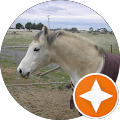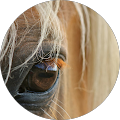A – B
Beetroot Powder
Beetroot contains folate, potassium and manganese. It is believed the red pigmentation contains certain anti-cancer agents and beetroot has been used in the treatment of cancer for some years. Beetroot is also hepatoprotective.
In animal tests, it has been used effectively to keep fat from depositing in the liver, due probably to the herb’s concentration of betaine. Indian medicine has long used it as a treatment for coughs and infections.
The root contains about a tenth portion of pure sugar, which is one of the glucoses or fruit sugars, which is very wholesome. Softer than cane sugar, it does not crystallize as well as the latter, and unlike cane sugar, the sugar present in beetroot is already in a more easily assimilated form, thus making the beet a valuable food.
Brewers Yeast
Is very high in B vitamins. The B vitamins in brewer’s yeast are B1 (thiamine), B2 (riboflavin), B3 (niacin), B5 (pantothenic acid), B6 (pyridoxine), B9 (folic acid) and H (biotin). These vitamins help break down carbohydrates, fats and proteins, which help the body with energy.
They also support the nervous system, help to maintain the muscles used for digestion and promote the health of skin, hair, eyes, mouth and liver.
Assists with digestive imbalance and may assist with relieving gastric ulcers. For horses deficient in Vit B1 [stress and nervous behaviour].
C -D
Calendula
Dried Herb make up as a tea:- Great as an antiseptic wash or ointment, for cuts and wounds of all kinds. Removes inflammation, prevents scarring and restores nerve function. Not to be used internally unless on strict professional advice.
Celery Seeds
These are excellent for horses suffering with arthritis or are prone to tying up.
It is also a mild diuretic and urinary antiseptic with warming effects so it is great for horses that have suffered a chill in the kidneys and often feel the cold.
Chamomile
Used as a sedative for reducing nervous tension or excitement.
Can be swabable if being tested for.
Can increase quantity prior to competition or if horse is extremely nervous.
Chastree Berry
Used to treat mares that exhibit great discomfort and erratic, bitchy behavior when they are in season but have a normal cycle pattern.
Treatment is usually only required for one cycle. .
Clivers
Very high in silica, useful lymphatic system stimulant and an antiseptic herb for geldings and stallions for resolving infection in the genito-urinary tract.
Use internally on professional advice as there are many herbs to treat the urinary system.
Cold Pressed Linseed Oil
Has the ability to re tension stretched ligaments and relax tight or shortened ligaments.
Linseed improves the colour and shine of your horses coat, as well as helping to lubricate a dry bowel.
Colloidal Silver
Good water cleanser, said to have antibiotic properties and good for infections.
Used on wounds externally as well as being fed internally.
Can also be used as an eye wash.
Often used when antibiotics wont work and has proven to be very successful.
Comfrey Leaves
Used for healing, which is high in vitamin B12.
Very good for healing injuries to bones, tendons, cartilage, soft tissue, ulcers and wounds.
Dandelion Leaves
Dandelion is an alternative herb, liver tonic and cleanser, improves the metabolism, balances digestion and is also tonic for kidneys, spleen and bladder.
It is high in Sodium, Potassium, Magnesium and Calcium and is therefore as a natural electrolyte.
It is also high in Choline, Iron, Silica, Sulphur, Vitamins A and D.
Dandelion is used as a liver tonic, in the treatment and prevention of tying – up, detoxification, rehabilitation from illness and as part of a mixture to improve general health and well being.
Devils Claw
Great for it’s anti-inflammatory and analgesic properties especially in the musculo-skeletal system.
Herbal alternative to “bute”, without the side effects.
It also stimulates healing.
Not for use on pregnant mares or where gut ulceration is present or suspected.
Diatomeous Earth
Diatomaceous earth is made from the fossilized remains of tiny, aquatic organisms called diatoms. Their skeletons are made of a natural substance called silica. Over a long period of time, diatoms accumulated in the sediment of rivers, streams, lakes, and oceans. Today, silica deposits are mined from these areas.
All livestock—horses, cows, pigs, sheep, goats, rabbits, chickens, and others—will benefit from Food Grade Diatomaceous Earth.
Some of its benefits include stimulating basic metabolism; converting feed better; reducing odour and moisture in barns and stalls; improving coat and hoof condition; keeping fly larvae from developing in manure, noticeably reducing the fly population; lowering annual vet bills; killing worms and internal parasites without chemicals; promoting healthier egg production and stronger eggs; and reducing overall animal stress.
Dolomite
Is extremely good for producing strong bones, teeth and hooves.
It is a natural form of calcium combined with magnesium.
Best fed in conjunction with seaweed meal.
E – F
Echinacea
A fighter of bacterial and viral infections.
It is widely used as a disease preventative and immuno-stimulant.
This herb contains copper, cobalt and iron as well as inulin and several fatty acids.
Elechampagne
This is a antiseptic respiratory herb for horses.
Elecampagne is used in the treatment of all respiratory infections coughing and allergies affecting the lungs.
It is very helpful in healing weak and scarred lungs to remove old infective material and mucus and as part of a mixture to treat bleeders.
Elecampagne is soothing due to its high mucilage content, it is the highest plant source of inulin and also contains Allantion
Fennel
Is a herb uses to treat the pancreas a organ vitally concerned with the metabolism.
Fennel works well balancing horses with poor appetites and or feed conversion difficulties as well as digestive problems.
Fennel seeds can also be used as part of a worming mixture.
Fenugreek
High in vitamins A and D with almost identical composition to cod liver oil.
It is recommended as a herb to temp picky eaters and improve general body condition.
Fenugreek is high in oestrogen so do not feed to mares who are in good to fat condition or who may have a hormonal imbalance, as it may cause flirtatious behavior.
Start with a little and only increase to no more that 20 grams daily.
French White Millet
Is very high in silica.
Without silica calcium cannot strengthen bones, hooves or condition hair and skin.
Silica is good for the treatment and prevention of arthritis.
G -H
Garlic
A natural form of sulphur.
Is used as an antibiotic for fighting bacteria, colds and coughs. It is also effective against hookworms, tapeworms, pinworms and aids in the deterrence of external parasites and insects.
Ginger Powder
Is highly effective in treating travel sickness, ginger given before floating horses can help settle, and given on arrival can tempt a horse to eat.
The therapeutic benefits of ginger are largely due to its volatile oil and oleoresin content. Ginger is an excellent remedy for many digestive complaints, including nausea, colic, wind and indigestion. Its antiseptic properties also make it beneficial for gastro-intestinal infections.
For the older, arthritic horse, ginger is a useful maintenance herb. It stimulates, circulates and helps blood flow to the surface, so can be an important remedy for chilblains and poor circulation to hands and feet.
Glucosanine Sulphate
Glucosamine is an essential building block in the formation of articular cartilage. A vital precursor to the synthesis of collagen and the production of hyaluronic acid. (HA). A major component of synovial fluid (joint capsule lubricant).
Glucosamine is ideal for the older horse who is sore or stiff in the muscles and joints. Is most suitable for all equine and canine species.
Hawthorn Berries
Good for the treatment of foot disorders, such as navicular and laminitis.
High in Rutin (vitamin P).
Improves circulation
I -K
L -M
Linseeds
These contain high concentrations of linolenic acid, omega 3 and omega 6.
Linseed is very good for the health of the digestive tract, ligaments and tendons, the immune system and prevention and treatment of arthritis.
Need to be boiled.
Magnesium Chloride Flakes
Magnesium Chloride Flakes can relieve muscle pain and reduce cramps associated with magnesium deficiency.
Magnesium is a most important mineral supplement due to its loss through sweat. It can reduce fatigue and stress and is a component of every healthy muscle cell.
By feeding Magnesium it can help to relax and balance the central nervous system to help in stressful and nervous situations.
Magnesium improves the immune system as a healthy immune system is driven by white blood cells that require good magnesium levels.
Magnesium is also essential to balance calcium intake.
MSM Powder
MSM stands for Methyl Sulfonyl Methane which is a nutritional form of Sulpher. It is a pure natural white powder with no smell. MSM acts as a transport molecule for elemental sulphur which is required for the amino acids, methionine and cysteine. Amino acids are an important part of protein. Protein is required for growth and repair and is involved in the formation of healthy connective tissues, joint function, proper enzyme activity, hormonal balance as well as proper function of the immune system.
With winter coming MSM is is good for is relieving inflammation and pain in joints that are associated with osteoarthritis, rheumatoid arthritis, muscle pain, fatigue and back pain. MSM often improves circulation and generates mobility. Lactic acid build up in the muscles can be relieved by MSM therefore making it an excellent supplement for athletes.
Mugwort
Used for horses that are extremely sensitive and are usually over reactive to things such as sight, sound, touch, smell, light wind and even barometric pressure. Chestnuts and thoroughbreds are prime candidates who usually benefit from mugwort.
N -O
Nettle
High in iron and vitamin C. Some horses may react with nettle rash – if so discontinue use.
Good to feed if horse is intolerable of lucerne and green feed is needed.
Will produce dappling in the coat of a brown horse.
P -Q
Passionflower
This is good for horses that are generally anxious, apprehensive and never seem to be at ease.
It can also be used on mares that are being treated for hormonal problems.
Peppermint Leaves
Have been cultivated commercially for a long time and has been used to flavour everything from laxatives to toothpaste. Medicinally though, it is best known for its ability to aid digestion and relieve gastrointestinal distress.
Peppermint owes most of its medicinal value to menthol, which is cooling, anesthetic, antiseptic and soothing to the stomach; it also contains antioxidants and a number of expectorant compounds (which stimulate the coughing up of mucous).
For horses, peppermint’s aroma is useful for tempting fussy eaters and/or helping to mask the smell of less pleasant herbs in their feed. It eases flatulence/bloating, increases the flow of bile from the liver and relaxes both gastrointestinal spasms and tight skeletal muscles. It can therefore be useful for the colic-prone horse or the horse who is nervous and tense when travelling.
Psyllium Husks
Good for moving sand through the gut.
An ideal herb to be fed during dry conditions.
Must be fed alternate days of weeks to achieve best results
R – S
Raspberry Leaves
High in folic acid. Good for a mare’s reproductive fitness and health.
Red Clover
Very high in cobalt and copper.
Red Clover contains a volatile oil and has oestrogenic effects, helping to reduce the impact of falling oestrogen levels.
Also can be used in treatment of skin conditions such as eczema, usually in combination with other purifying herbs such as yellow dock and burdock.
Rosehips
Very high in vitamin C and a vast array of other vitamins as well as a high mineral content including Iron, Copper and Cobalt.
Will also help fight infections, boost coat and hoof condition and an excellent form of biotin.
Seaweed Meal
Is a very good way of feeding the majority of minerals necessary for good health economically.
It contains calcium, zinc, sulphur, magnesium, manganese’s, copper, iron, iodine, cobalt, boron, molybdenum and many other trace elements.
There are rare individuals who are seaweed intolerant, due to sensitivity to the iodine content.
Slippery Elm Powder
Is exceedingly high in mucilage and nutrients and is specifically indicated for scouring and the prevention and treatment of gut ulceration.
Externally it is very good to use for poulticing, as it is soft and sticky when water is added and can be used on its own or with other ingredients.
T – U
Tumeric Powder
The active ingredient in turmeric is called curcumin and it is this specific phytochemical that is known for its effectiveness in treating a variety of conditions.
Turmeric is probably best known for its use as an anti-inflammatory, it is said to be also helpful for detoxifying the liver and as a antioxidant.
V – W
Valarian
Has anti-spasmodic qualities and useful as a mix for stringhalt and tying up. Can also be a laxative and can make horses with loose manure worse.
Known to be swabbed.
Vervain
Used as a sedative for horses that sweat, tremble or shake when nervous.
Also excellent for horses that are impatient, fiddly, fussy and pace around because they need company.
White Willow Bark
Contains salicylic acid, which gives it anti – inflammatory and analgesic actions.
Aspirin is a derivative from white willow bark.
Known to swab.










